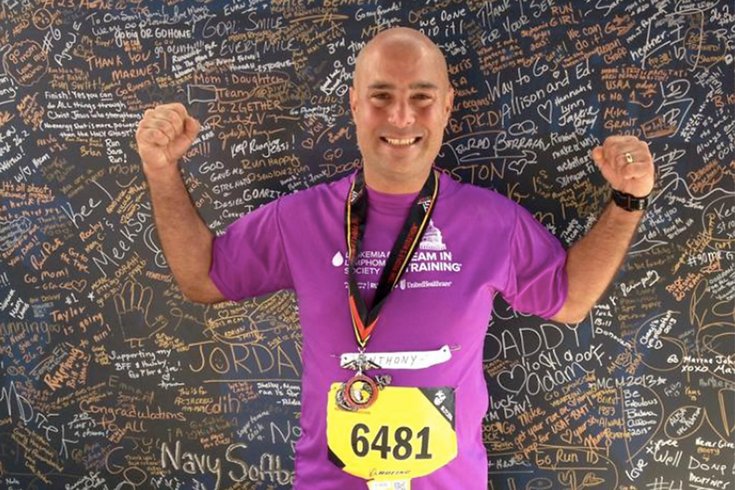
January 18, 2019
 Source/Facebook
Source/Facebook
Dr. Anthony Perre, chief of the Division of Outpatient Medicine at Cancer Treatment Centers of America and director of new patient intake and vice chief of staff at its Philadelphia facility, thought he had a full understanding of the disease. Then he was diagnosed with it.
Despite an American Cancer Society report earlier this month that deaths by cancer have been on a steady, 25-year decline, the occurrence of cancer doesn’t seem any less.
No one knows this better than Dr. Anthony Perre, the chief of the Division of Outpatient Medicine at Cancer Treatment Centers of America and director of new patient intake and vice chief of staff at its Philadelphia center. In 2007, at the age of 38, he learned his own cancer diagnosis: Hodgkin’s lymphoma.
RELATED READ: The ties that bind: Drexel doctor's huge collection spreads joy
This diagnosis was a particularly ironic and humbling experience because, as an oncogeneralist, Perre thought he fully understood cancer. As a doctor, he thought he knew exactly what to expect as his own treatment was suddenly dropped on him. But Perre wrote a recent column for Huffington Post chronicling just how “clueless” he really was when it came to certain aspects of cancer treatment.
Education and experience, obviously, had given him a full understanding of the physical treatment of cancer – the chemotherapy, the radiation, the compromised immune system. But there's another side to serious disease – the emotional and psychological toll of battling for your life – that had escaped Perre the doctor, but not the Perry the patient, he noted:
“There was a whole other aspect to surviving cancer that I was nearly clueless about: the extensive range of emotion I’d experience, plus the psychological toll. The things that came into play long after the final treatment. The things I now consider to be some of the biggest challenges to survivorship ... to living life as fully as possible after cancer.”
Perre recalls the panic and anxiety he experienced when his treatment was over and his final results came in — they were clear, by the way. He recounts his wife having to “talk him down” because his anxiety about the cancer coming back was so real and strong.
In fact, these feelings led him to seek the support of a health coach utilizing cognitive behavioral therapy to help him work through emotions, develop personal coping strategies and stay focused on his progress against the disease.
While undoubtedly a trying experience for Perre, he actually considers it to be an amazing opportunity in some regards. He even credits his cancer journey with making him a better doctor. He now has a more intimatel understanding of the entire ordeal. He is better able to anticipate and discuss important issues with patients: "Will I have to quit my job?” ,“Why have my relationships changed?” ,“I haven’t had a drop of chemo yet, so where is this nausea coming from (anticipatory nausea was a big factor in my own journey)?” and “My last scan was clear, so why all this anxiety?”
Further, his personal experience has inspired more-informed protocols of care for the post-treatment survivor at CTCA.
Perre shares much more of his experience as a cancer patient in his column for Huffington Post.